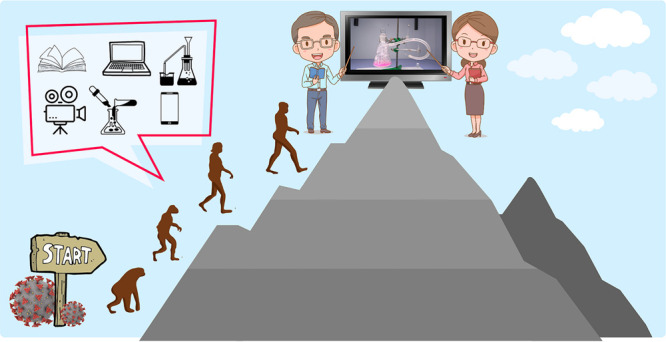- Record: found
- Abstract: found
- Article: found
Evolution after the Revolution: How Classical and Online School Chemistry Teaching Has Changed during the COVID-19 Pandemic?

Read this article at
Abstract

Two years of the COVID-19 pandemic had a tremendous impact on education. In the beginning, teachers were shocked by compulsory online teaching; later, they had to cope with changing restrictions, distance, and blended and hybrid environments. Such a situation was particularly difficult for chemistry teachers, who not only were forced to find a way to organize classes focused on theoretical knowledge but also had to present various phenomena, reactions, and preferably, practice laboratory skills. This paper is focused on changes in chemistry teaching at the secondary school level after two years of the pandemic compared to the first lockouts. The study involved 28 chemistry teachers and their 110 students, all from Slovakian secondary schools, and was based on online questionnaires. Results revealed how online school chemistry teaching changed, what were the teachers’ challenges and attitudes toward online teaching, and how the students perceived online chemistry lessons. It was found that various groups of teachers mastered elements of online teaching at different levels. There are still teachers who struggle with the basics of online teaching but also skilled teachers who can handle many online teaching features. However, all of them still require assistance in their development, covering methodological, technical, and equipment areas. Therefore, results of this study suggest which aspects of online education instructors should pay attention to during pre- and in-service teachers’ training, so skills gained by teachers during the pandemic will not be lost, and which areas of online teaching are beneficial or difficult for students.
Related collections
Most cited references35
- Record: found
- Abstract: found
- Article: not found
“I Hate This”: A Qualitative Analysis of Adolescents' Self-Reported Challenges During the COVID-19 Pandemic
- Record: found
- Abstract: not found
- Article: not found
A systematic literature review on synchronous hybrid learning: gaps identified
- Record: found
- Abstract: found
- Article: not found